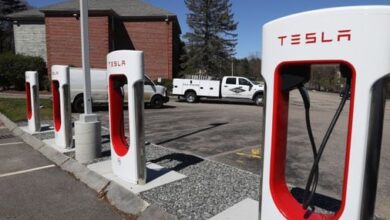Without worries: The electric cars with the longest range you can buy

Have you ever encountered a mileage rating for a gasoline car, or even checked the fuel tank capacity before buying one? Probably never. Because in the world of gasoline or diesel cars, the range or fuel tank capacity is simply not a relevant factor. The reason? Almost everywhere you are only a few kilometers or at most a few tens of kilometers away from a gas station, where you can refill your car within minutes for many more kilometers of driving.
In electric cars, the story is different. Here, range is king, the battery is queen, and the question of the early days of electric cars in Israel, “Will it reach Eilat?” may be asked less often at every encounter with an electric car, but still, it is one of the first questions that an electric car customer asks while clarifying his needs.
If at the beginning we were satisfied with a range of about 270-300 km in a relatively standard family car like the Nissan Leaf, in a few years, the accepted minimum range has increased by at least 100-150 km. And it should be noted – range is not necessarily the determining and central parameter for electric cars. Range is a function of need, and for a customer whose electric car is the solution for a second urban or short-range vehicle, even half of the range presented here and below could suffice.
The cars we have gathered here have long been looking at a very high 300 km range. The reason for the current review is the entry of the MG4 in its X Range version into the market. With an equation that has shaken up what we know about the shekel per km ratio of electric cars.
We established two parameters for ourselves, a minimum of 500 km and up to NIS 300,000. True, prices like these are already entering the luxury realm, but when even small electric hatchback cars start at NIS 140,000, the price range for cars (whether justified or not, that’s another question) is different from that of gasoline cars.
In addition to the range and the high price, we also considered a rating of shekels per km, meaning who gives you the most kilometers per shekel. When there were several range options, we chose the one with the longest range, so for example, in the case of the ORA 07, which has a 440 km version at NIS 200,000 or the Pro Plus at NIS 225,000 with a range of 570 km. In other cases, like the Xpeng G9, the version that met the NIS 300,000 price threshold entered the list, not the one with the longer range (570 km) that exceeds the budget.
There are also some standout electric cars in the market that offer a good range and a very good shekel per km ratio, even if they don’t reach the 500 km threshold. The BYD Dolphin with 427 km for NIS 144,000 presents a ratio of NIS 337 per km. The Geely Geometry C in its long-range version reaches 485 km and costs NIS 168,000, which is a ratio of NIS 346 per km, and the Zeekr X with a range of 445 km at NIS 185,000 has NIS 355 per km.
The electric cars with the best range up to NIS 300,000
Model and range | Purchase price | Price per km range
1. Tesla Model 3 Long Range – 629 km | NIS 241,000 |NIS 383per km (4th place)
2. Zeekr 001 Single Engine Long Range – 620 km |NIS 270,000 |NIS 435 per km (8th place)
3. Hyundai Ioniq 6 Prestige – 614 km | NIS 238,000 | NIS 387 per km (5th place)
4. Xpeng P7 – 576 km | NIS 210,000 | NIS 364 per km (2nd place)
5. BYD Sil – 570 km | NIS 217,000 | NIS 380 per km (3rd place)
6. Ora 07 Pro Plus – 570 km | NIS 225,000 | NIS 394 per km (6th place)
7. Polestar 2 Long Range, Single Engine – 546 km | NIS 265,000 | NIS 485 per km (12th place)
8. Tesla Model Y Long Range – 533 km | NIS 282,000 | NIS 529 per km (14th place)
9. Kia EV6 Premium – 528 km | NIS 237,000 | NIS 448 per km (10th place)
10. MG 4 X Range – 520 km | NIS 164,000 | NIS 315 per km (1st place)
11. Volkswagen ID.4 Pro – 519 km | NIS 234,000 | NIS 450 per km (11th place)
12. Skoda Enyaq – 517 km | NIS 215,000 | NIS 415 per km (7th place)
13. Toyota bZ4X Used – 502 km | NIS 246,000 | NIS 490 per km (13th place)
14. Seres 5 – 500 km | NIS 220,000 | NIS 440 per km (9th place)



